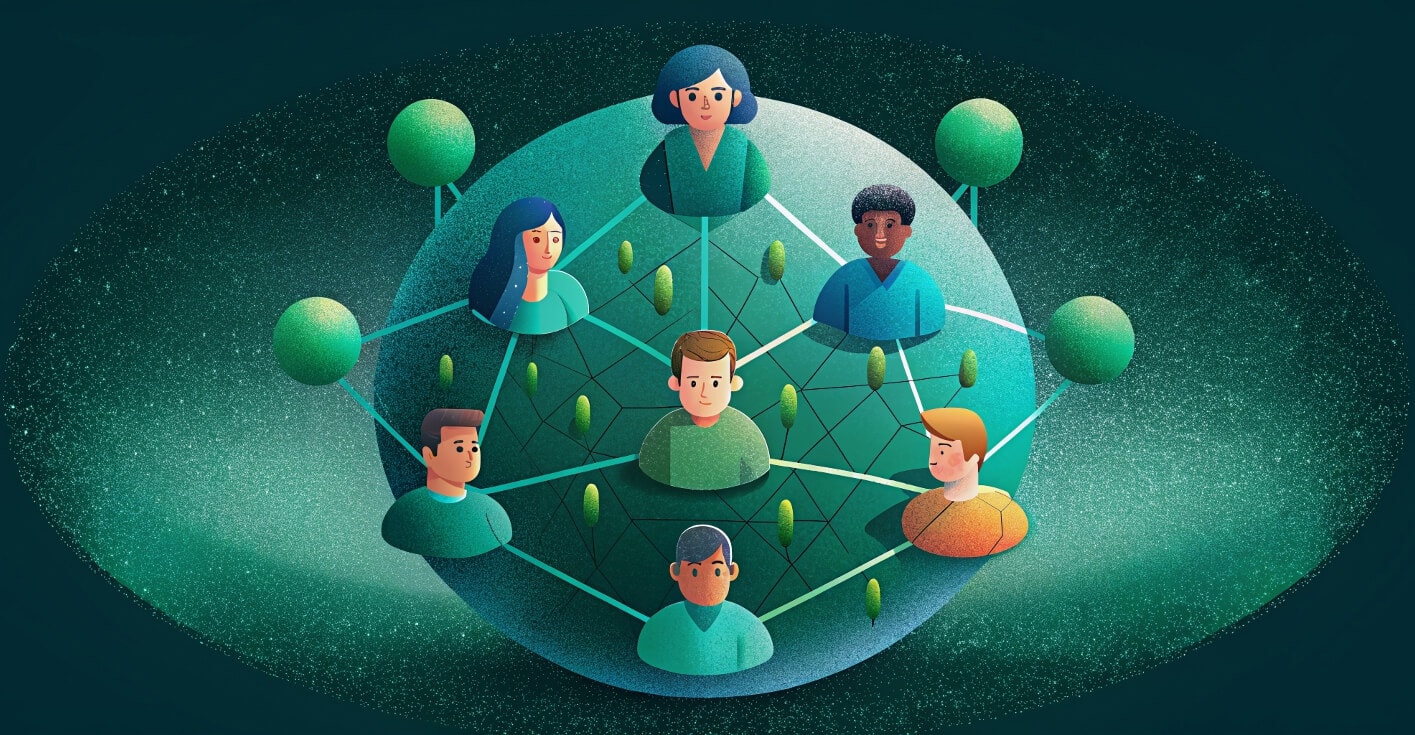35 Best Sociology Books
If you’re looking for a list of the best books on sociology, then you have come to the right place. Here are the top 35 books about sociology.

If you’re looking for a list of the best books on sociology, then you have come to the right place. Here are the top 35 books about sociology.

The American sociologist and humanist sociology professor C. Wright Mills once said, “Whatever sociology may be, it is the result of constantly asking the question, what is the meaning of this?” that’s about the most concise-perhaps though not the most precise- way of putting sociology into words.
Sociology is among the very few scientific practices that didn’t stay in the ivory tower of academia. From the beginning, it has attracted many curious eyes that have always been amazed at how human society is constructed and functions. And sociology books have indeed done an excellent job in helping us better understand the social forces that shape human behavior.
To put it differently, here we’re talking about a science field so powerful that it can be used almost like a weapon to bring out the worst or the best in human nature. But scary facts aside, by learning sociology, you’ll be better equipped to look at life from different perspectives and make better decisions in the complicated world we all live in.
So, where should we get this priceless knowledge? In sociology books, of course! And as always, we have picked out the best of them for you. A collection of books that will give you not only the latest scientific findings but also the pleasure of solving a piece of the human puzzle. Without further ado, let’s begin:
Picking a handful of works from a myriad of brilliant sociology books isn’t easy. But these books were chosen for a reason. On the one hand, they represent a resourceful tradition to which they belong. On the other hand, they are themselves turning points in the field that have changed the way we understand human society.
Weber’s best-known and most controversial work, The Protestant Ethic and the Spirit of Capitalism was originally published in 1904. He brilliantly studied the relationship between the ethics of ascetic Protestantism and the emergence of the spirit of modern capitalism. Many argue that Weber established the economic morality of liberalism for the first time in history.
The International Sociological Association ranked this influential book as the “fifth-most important sociological book of the twentieth century.” Berger and Luckmann view human society from the social construction perspective. Later, social constructivism became one of the most influential theoretical approaches in political science and sociology.
Das Kapital, or capital, is a groundbreaking book and arguably the most influential that changed western society forever. Marx inspired working-class laborers, activists and many critical thinkers to recognize their real place in the modern world and fight far-reaching and profound social and political injustices.
If you’re interested in reading the social sciences in a historical context, this fascinating book will undoubtedly help you. The book explores the emergence of the particular dynamics of medieval and early modern Europe, from state formation to social stratification.
Habermas is one of the best-known representatives of Critical Theory and the Frankfurt School tradition. In this book, he presents a systematic synthesis of the major themes in twentieth-century philosophy and the social sciences.
French sociological and philosophical literature is never an easy read, and Bourdieu is no exception. Yet this book, based on the studies of the French bourgeoisie, brilliantly illuminates the social pretensions of the middle classes in the modern world.
Parsons was a classical sociologist best known for his social action theory and structural functionalism. His idea was developed to respond to and reject the suppression of individual rationality in Institutionalism, and the reductivist conception of choice in behaviorist psychology, most notably in the works of B. F. Skinner.

Photo by Ergita Sela from Unsplash
If you want to start reading sociology as a beginner, there are two standard options. The hands-on approach suggests studying classics and reading from authorities in the field. Perhaps less overwhelming and intimidating, the second approach is to start with accessible introductions. We combine both strategies here to give you a list of the best sociology books to get the ball rolling:
The third edition of Introduction to Sociological Theory provides a thorough revision and a detailed introduction to classical and modern theories. Dillon’s primary concern is to demonstrate the relevance of theory to understanding a wide range of current issues and topics.
Introducing Sociology is one of the best sociology books, tracing the origins of social science from industrialization, revolution, and the Enlightenment to globalization, neoliberalism, and nationalism. Nagle attempts to address racial disparities, the relationship between power and knowledge, and sexual identity.
Dictionaries are invaluable resources for beginning and even advanced researchers. Professor John Scott’s book contains 2,500 entries on terminology, methods, concepts, and thinkers in the field, as well as the related fields of psychology, economics, anthropology, philosophy, and political science.
Giddens is one of the well-known authorities in modern sociology. He provides a comprehensive overview of recent developments in sociological thought. The perfect combination of fascinating ideas and thought-provoking questions in the text immerses students in an active learning experience.
If it feels good to read sociology, just imagine how it feels to do it. Korgen and Atkinson inspire students to practise sociology through real-world activities designed to improve learning, retention, and engagement with course material. In the second edition of this best-selling text, key sociology concepts are clearly explained through their applications, examples, and experiences.
If you go looking for course books, manuals, guides, etc., you will have no shortage. But the phenomenal success of Haralambos’ book makes it the king of sociology textbooks. He explores a variety of sociological topics, including sociological research methods, power elite, bureaucracy, revolution, protest, and social organization.
The Sociological Imagination is not a book to miss when reading about social science. First published in 1959, the book devotes a special focus to the research orientation developed during World War II. Mills opposes the ascendant schools of sociology in America and calls instead for humanistic sociology.

Photo by Tom Hermans from Unsplash
Here’s a list of the best non-fiction sociology books:
Inspired by C. Wright Mills, Dr. Domhoff illustrates how and why a network of social power within the American power elite has shaped policy issues in recent years against the opposition of every major corporation in the country. He argues why the post-World War II global economic order cannot be understood solely in terms of narrow self-interest or bureaucratic decision-making processes.
The book surveys the emergence of sociology as a discipline against the backdrop of socio-economic development that has characterized Western societies since the late Middle Ages. However, Judge also addresses the applicability of sociological ideas to everyday life and provides an insightful and comprehensive analysis of the troubling problems we constantly face as a society.
This widely acclaimed book meticulously examines social movements’ analytical and oral history. Tilly and Wood cover numerous topics ranging from everyday events to complicated social phenomena, such as the economic crisis, protest actions, immigrants’ rights, new media technologies and platforms, and the role of bloggers and Facebook in social movements.
The lectures collected in Mind, Self, and Society are the intellectual achievement of one of the most brilliantly original American pragmatists, George Herbert Mead. As a social behaviorist, he placed special emphasis on studying social psychology and its connections with human development.
A diverse collection of more than 60 writings by various influential thinkers, this book demonstrates the complex intersection of race, class, gender, and sexuality and how it shapes individuals and society as a whole. Co-editors Andersen and Collins begin each section with an in-depth introduction to the most controversial sociological issues.
Bryan Stevenson, the New York Times bestselling author of Just Mercy, described this book in one word: groundbreaking. With a perspective shaped by scientific and investigative research and informed by personal experience, Dr. Jennifer Eberhardt digs deep into the questions regarding the African American community in the US.
An entertaining, delightful and illuminating landmark work that takes us on an intellectual journey through the world of “outliers”–the best and the brightest, the most famous and the most successful. “Outliers is a pleasure to read and leaves you mulling over its inventive theories for days afterward,” David Leonhardt wrote in the New York Times Book Review.

Here are the seven best sociology books published in 2021:
We all have been told, “follow your passion.” But is that legitimate advice? What if the passion principle eventually fails us and perpetuates inequality based on class, gender, and race? This data-driven study explores the connection between the pursuit of passion and how capitalism achieves its goal by pushing the middle class and working class down an aberrant path.
Jessie Daniels illuminates the unique role white women play in perpetuating racism and explains at length that this is not their immutable fate. She promotes non-gendered feminism that focuses on the intersections of race, class, sexuality, and more.
The social unrest of 2020 and the increasing calls for racial justice raise a question before many concerned eyes: how can I be part of the solution? Robert Livingston gives us the answer. By exploring the roots of existing systemic racism against Black people, he provides strategies to eradicate it for good.
Born in the mid-1990s, members of Generation Z were always a big question for other generations. While many viewed them as victims or winners, the authors of this book believe the existing literature on Generation Z has been highly judgmental, and we still have much to learn about and from them.
Discover Sociology is an eloquent response to questions about sociology as a discipline of the curious and scholarly. The book’s central themes are the unequal distribution of power and authority in all aspects of social life and the resulting unjust criminal justice system.
The book is a collection of 24 short readings that illustrate key concepts in sociology. This brief anthology is excellent for stimulating classroom discussion because the topics are not highly theoretical. Students can quickly see relatable points and connections to their own lives.
Is conformity a blessing or a curse? When we live in societies divided along the lines of religion, political conviction, race, ethnicity, and gender, we might sometimes struggle to answer such questions. Cass R. Sunstein provides a fascinating argument for exploring conformity and informed dissent in this book.

Here are the seven best sociology books published in 2020:
#1 The New York Times bestseller and Pulitzer Prize-winning book, Caste, has garnered much attention from critics and concerned citizens. Wilkerson gives us a masterful portrait of a hidden caste system, a rigid hierarchy of human rankings which has covered itself behind race, class, and sexual characteristics.
If you want to introduce your children and students to a critical view of the world, The Real World is the best choice. The authors use examples from everyday life and pop culture to encourage readers to think sociologically and show the relevance of sociology to their relationships, careers, and the future of society.
One can look at sex from different angles, but sociology has perhaps the strangest and most fascinating point of view. Lister explores the ways in which society dictates how sex is culturally understood and practised and how various emotions and behaviours such as stigma, shame, and humour have shaped our sexual understanding.
From French postmodernism to today’s rubber-stamp culture and social media dogpiles, there is a form of social cynicism practiced by academics and ordinary people alike: Science and reason are tools of oppression, language is dangerous, and assertions of this sort. The authors reveal the amazingly shallow intellectual roots of the movements that seem to be engulfing our culture.
Today, it is widely accepted that men have often suppressed women’s voices throughout history. The question is, how different would human evolution have been? Elizabeth Lesser argues that caring, compassion, and communication would have been more important than revenge and violence in this alternative history.
In the wake of the #MeToo movement, online anti-rape activism offers a critical interpretation of the limits and possibilities of online anti-rape campaigns. Loney-Howes draws on semi-structured interviews with activists, survey data, and content analysis of social media pages, weblogs, and websites to examine this new social phenomenon.
Boundaries are one of the main reasons we feel safe among strangers, in everyday interactions, and our closest relationships. Bestselling author Dr. Faith Harper offers a practical guide to improving our relationships by respecting each other’s boundaries and eliminating conflict.

There are an unlimited number of books and articles you can read for sociology. The final answer very much depends on your specific interest and question. But here are three books that will give you a general and in-depth understanding of the field:
That’s an impossible question to answer. Sociology has a long and rich tradition of intellectual thinking. Plus, many novelists, fiction writers, activists, political scientists and psychologists have contributed to the field. That being said, C. Wright Mills is the best-known social science author, primarily remembered for his masterpiece, The Sociological Imagination.
Primary themes of the sociological vision include the interplay between the individual and society, stability and change in social reality, the causes and consequences of social inequality, recurring patterns of social interaction and the social construction of human life.

Discover the best ebook subscription apps for 2026. Compare pricing, features, and catalogs of top platforms like Kindle Unlimited, Kobo Plus, and Everand to find your perfect reading service.

Discover the top 10 book making apps of 2025 that streamline writing, formatting, and publishing processes for authors and publishers.

Reading the best psychology books helps us understand the science behind the human brain and the thinking process. Here are the 35 best psychology books everyone should read!